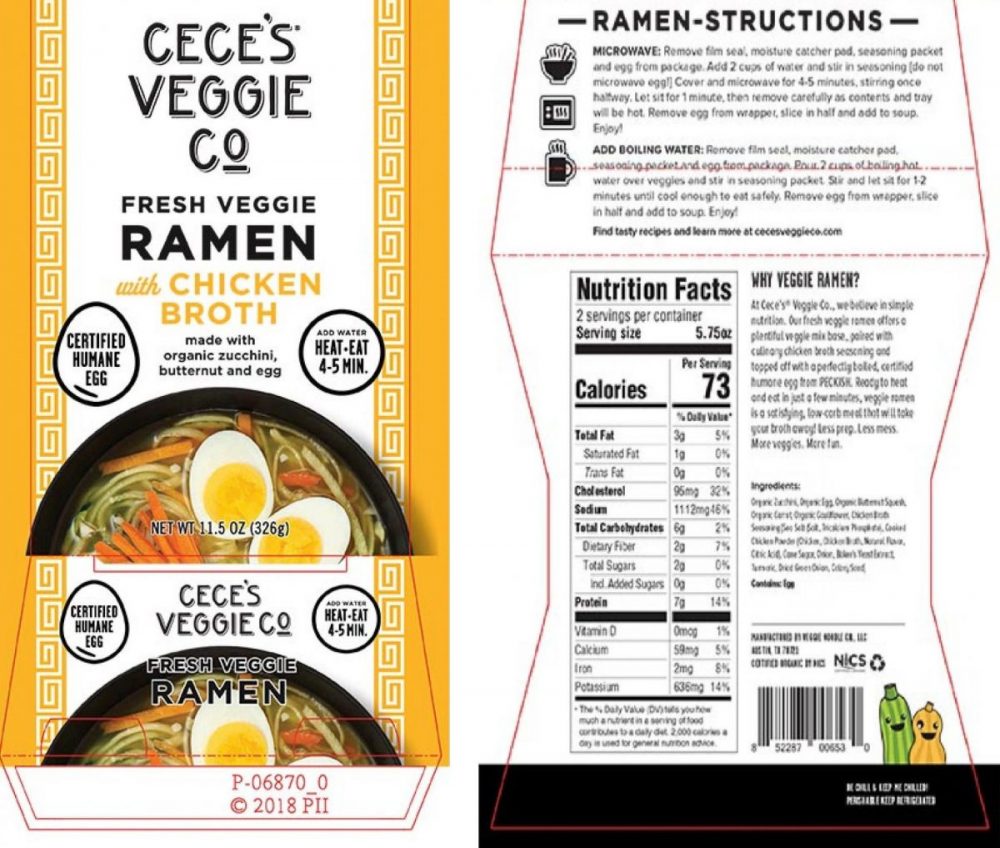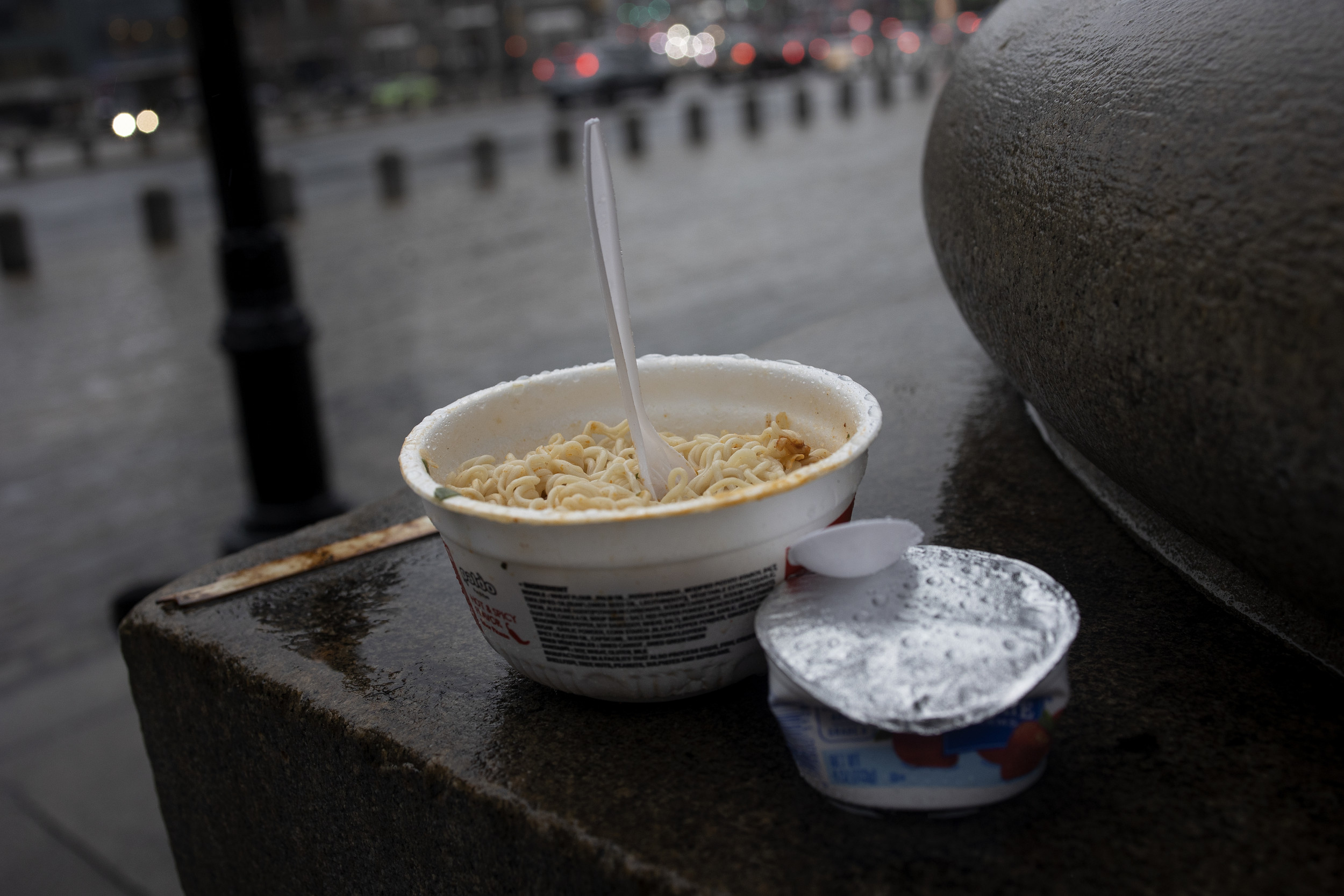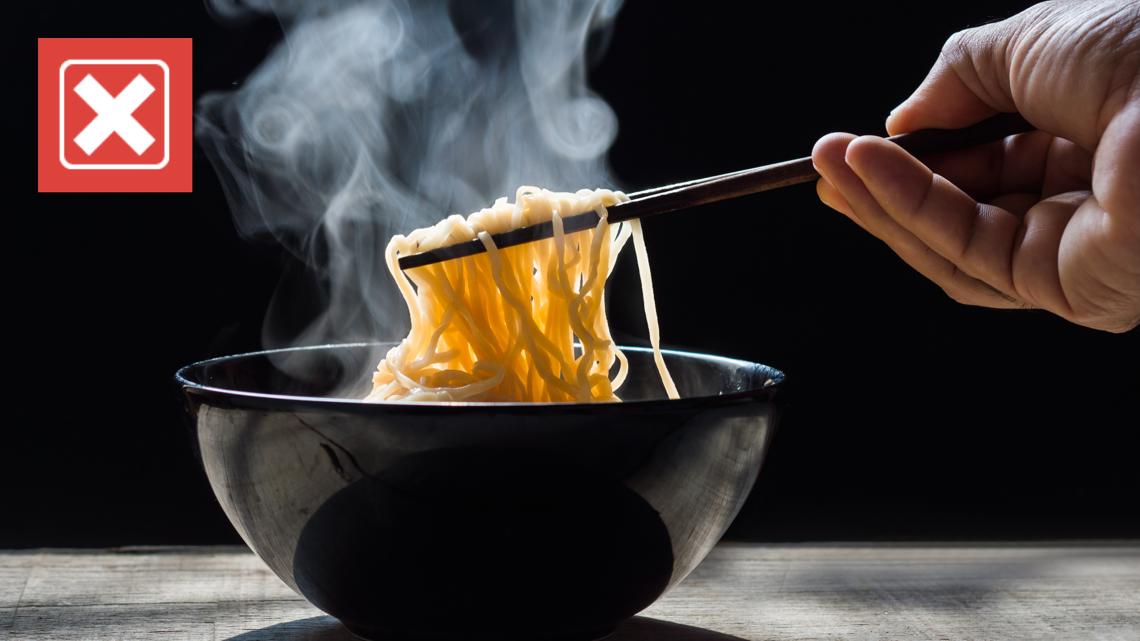Breaking: 2024 Ramen Noodle Recall - What You MUST Know NOW!
Are your favorite midnight snacks safe? The 2024 ramen noodle recall has shaken the comfort food world, forcing consumers to question the very essence of convenience they've come to rely on. It's a wake-up call about global food safety that demands our attention.
The recall, impacting numerous brands across multiple countries, has triggered widespread scrutiny. It is no longer sufficient to blindly trust our favorite food brands. Consumers are now tasked with dissecting ingredient lists and demanding transparency in food safety protocols. This article aims to serve as a guide, providing a comprehensive look at the recall, its potential implications, and the proactive steps you can take to safeguard your health and dietary choices. The issue goes beyond a simple product defect; it strikes at the heart of consumer confidence and the integrity of the global food supply chain. From unraveling the root causes to empowering you with the knowledge to protect yourself, consider this your definitive resource on the 2024 ramen noodle recall.
| Attribute | Details |
|---|---|
| Category | Food Safety Recall |
| Product | Ramen Noodles |
| Date of Recall | 2024 |
| Reason for Recall | Contamination (Harmful Bacteria, Chemical Residues), Packaging Defects |
| Affected Regions | Global (Multiple Countries) |
| Estimated Economic Impact | Exceeding $50 million |
| Source of Information | U.S. Food and Drug Administration (FDA) |
Ramen noodles, once hailed as the epitome of a quick and affordable meal, have now become a symbol of potential safety vulnerabilities within the food industry. The 2024 ramen noodle recall underscores the urgent need for stringent oversight and increased vigilance. This article will offer an in-depth examination of the recall, its breadth, and the reasons why understanding its nuances is of paramount importance to every consumer. The affected brands span continents, involving products popular in North America, Europe, and Asia. The scale of the recall alone highlights the interconnectedness of the global food market and the ease with which contamination can spread.
- Xhaamster The Ultimate Guide To Understanding And Maximizing Its Potential
- Aja Wilson Husband The Story Behind The Nba Stars Love Life
The recall's scope encompasses several well-known brands, underscoring the global nature of the problem. The removal of affected products is currently underway across multiple countries as authorities work to identify the root cause of the widespread issue. Its a race against time to prevent further potential harm. The urgency of the situation is amplified by the sheer volume of ramen noodles consumed daily worldwide, making it imperative that these products are thoroughly vetted for any potential health hazards. Beyond the immediate health risks, the recall threatens to erode consumer trust in the entire convenience food sector.
Ramen noodles have become a dietary staple for many individuals around the world, and this recall's implications are far-reaching. It is crucial to understand what this means for food safety, and how it can empower consumers to make informed decisions regarding their purchases. Individuals and families rely on these products for their daily sustenance, understanding the recall's ramifications enables people to safeguard their health and well-being more effectively. The long-term consequences of ignoring such alerts could be severe, ranging from chronic health conditions to compromised immune systems. The recall serves as a reminder that we are what we eat, and ensuring the safety of our food is a shared responsibility.
Ramen noodles have a history spanning centuries. Originating in China, they were introduced to Japan in the late 19th century. Their adaptation in Japan led to a global culinary sensation, and this section explores the evolution and lasting impact of ramen on modern cuisine. It's a journey through time, revealing how a humble dish transformed into a worldwide phenomenon. Understanding this historical context provides a deeper appreciation of ramen's cultural significance and the potential impact of any disruption to its production or consumption.
- Unveiling The Secrets Of Xhamster Your Ultimate Guide
- Chanster The Ultimate Guide To Understanding The Phenomenon
The integration into Japanese culinary traditions gave rise to distinct regional variations, which further expanded the appeal of ramen across different palates and preferences. Each region developed its own unique recipe, broth, and toppings. This evolution contributed to ramen's enduring popularity. The development of instant ramen in the 1950s revolutionized the global food market and made ramen accessible to millions of people worldwide. This technological leap transformed the dish from a regional delicacy to a global commodity.
The 2024 ramen noodle recall stems from potential hazards detected during the production process. This section will highlight the key factors that triggered the recall and the scientific justifications behind them. The issues are not merely superficial; they involve critical failures in the production chain that directly threaten consumer health. Addressing these factors requires a comprehensive overhaul of current manufacturing practices and the implementation of more rigorous quality control measures. The recall exposes vulnerabilities in the system and calls for immediate action to rectify these shortcomings.
Testing uncovered the presence of harmful bacteria and chemical residues in several batches of the affected products, presenting a health risk and demanding immediate action. The types of bacteria detected included strains known to cause severe gastrointestinal illnesses. Chemical residues, stemming from cleaning agents or pesticides, posed additional health hazards. The scientific evidence is irrefutable, leaving regulators and manufacturers no choice but to act decisively to protect the public.
Packaging defects have played a significant role in the recall, adding to the contamination concerns. Improper sealing and labeling errors can cause product spoilage and confuse consumers, exacerbating the issue. Defective packaging compromises the integrity of the product, creating an environment where contaminants can thrive. Labeling errors mislead consumers, potentially leading to accidental consumption of unsafe products or improper preparation methods. The combination of these factors underscores the need for comprehensive quality control checks at every stage of the production process.
Numerous well-known brands have been implicated in the 2024 ramen noodle recall. This section will provide a complete list of the affected brands and the specific products involved, arming consumers with the information needed to make safe choices. The list is extensive, encompassing both international giants and smaller regional players. This wide range of involvement underscores the pervasive nature of the problem and the need for broad consumer awareness. Identifying and avoiding these specific products is the first step towards mitigating potential health risks.
Certain flavors and varieties from Brand X have been identified as problematic, necessitating their immediate removal from shelves. Brand Y was recalled because routine testing revealed contamination concerns, raising questions about their quality control protocols. Brand Z discovered packaging defects during quality control inspections. The defects ranged from compromised seals to mislabeled ingredients. These specific instances illustrate the diverse nature of the issues plaguing the industry and the need for comprehensive corrective actions.
During a recall, ensuring consumer safety is crucial. This section offers practical guidance on identifying affected products and the steps to take if you have purchased them, providing clear and actionable advice to protect your health. It's a roadmap for navigating the complexities of the recall and making informed decisions about your food consumption. By following these steps, you can minimize your risk of exposure and contribute to a safer food environment for everyone.
Carefully examine product labels for batch numbers or codes listed in official recall announcements. Staying informed by consulting government health agencies and manufacturer websites is crucial. Official announcements typically provide detailed information about the specific products involved, including lot numbers, expiration dates, and package sizes. Verifying this information against the products in your pantry is essential for identifying and isolating affected items. Relying on trusted sources ensures that you receive accurate and timely updates about the recall.
Return any affected products to the point of purchase for a refund or replacement. Contact the manufacturer directly for further instructions and updates. If returning products is not feasible, dispose of them safely. Returning the products not only protects your health but also helps manufacturers track the extent of the recall and implement corrective measures. Direct contact with the manufacturer provides an opportunity to ask specific questions and receive personalized guidance. Safe disposal prevents others from inadvertently consuming contaminated products and perpetuating the health risks.
Consuming recalled ramen noodles can lead to various adverse health effects. This section highlights the potential risks and symptoms associated with exposure to contaminated products, alerting you to potential warning signs and the importance of seeking medical attention if necessary. The consequences of consuming contaminated food can range from mild discomfort to life-threatening conditions. Recognizing these potential health risks is essential for taking prompt action and preventing long-term damage.
Common symptoms include gastrointestinal distress, such as nausea, vomiting, and diarrhea. Allergic reactions can range from mild skin irritations to severe anaphylaxis. Potential long-term health effects can arise from exposure to harmful chemicals. Gastrointestinal symptoms typically manifest within hours of consuming contaminated food, signaling the body's attempt to expel the toxins. Allergic reactions can occur in individuals with pre-existing sensitivities or as a direct response to the contaminants. Long-term exposure to harmful chemicals can lead to chronic illnesses and compromised immune function.
If you experience any of the mentioned symptoms after consuming recalled products, seeking prompt medical attention is crucial. Inform your healthcare provider about potential contamination for accurate diagnosis and treatment. Early diagnosis and treatment are essential for minimizing the severity of the symptoms and preventing complications. Providing your healthcare provider with detailed information about the potential contamination helps them tailor their treatment plan to address the specific health risks involved. It's a proactive step towards ensuring your well-being and facilitating a full recovery.
Global regulatory bodies have acted swiftly in response to the 2024 ramen noodle recall. This section examines the measures implemented to address the situation and prevent future occurrences, assuring you that authorities are taking the necessary steps to protect public health. The response involves a coordinated effort between government agencies, food manufacturers, and distributors. It's a multi-faceted approach that encompasses monitoring, enforcement, and preventative measures. The goal is to restore consumer confidence and ensure the safety of the food supply chain.
Health agencies like the FDA and WHO have issued guidelines and advisories to mitigate the recall's impact. Regular inspections and testing protocols have been enforced to enhance food safety standards. The guidelines provide clear instructions for consumers, retailers, and manufacturers. Regular inspections ensure that food manufacturers comply with safety regulations. Rigorous testing protocols help detect contaminants early and prevent contaminated products from reaching the market.
Food manufacturers and distributors have worked with regulatory bodies to implement corrective actions, which include recalling affected products, improving quality control, and investing in safety technologies. These actions demonstrate a commitment to resolving the issues and preventing future incidents. Recalling affected products removes them from the market, preventing further potential harm. Improving quality control processes ensures that products are manufactured according to strict safety standards. Investing in safety technologies enhances the ability to detect and prevent contamination.
Minimizing future recall risks requires a proactive approach from manufacturers and consumers. This section outlines strategies to enhance food safety and reduce contamination likelihood, providing a framework for a safer and more reliable food system. The emphasis is on prevention rather than reaction. By focusing on proactive measures, we can reduce the risk of future recalls and build a more resilient food supply chain. It's a collaborative effort that requires vigilance and commitment from all stakeholders.
Implementation of stricter hygiene protocols across all production stages is key. Investment in cutting-edge testing technologies will help detect contaminants early. Comprehensive training programs for staff on food safety practices will create a culture of safety within the industry. Stricter hygiene protocols minimize the risk of contamination during the production process. Cutting-edge testing technologies enhance the ability to detect even trace amounts of contaminants. Comprehensive training programs ensure that all staff members are aware of best practices for food safety.
Staying informed about food safety practices and remaining vigilant about product recalls can reduce the risk of exposure to hazardous products. Regularly checking for updates from trusted sources is essential. Informed consumers are better equipped to make safe choices and protect their health. Vigilance helps detect potential issues early and prevent the spread of contamination. Checking for updates from trusted sources ensures that you receive accurate and timely information.
Data and statistics are invaluable in understanding the scope and impact of the 2024 ramen noodle recall. This section presents relevant figures and insights from credible organizations, providing a comprehensive overview of the situation. The numbers tell a compelling story, revealing the extent of the problem and the potential consequences. By examining the data, we can gain a deeper understanding of the challenges and opportunities for improving food safety.
The number of affected products is over 10 million units recalled globally. The countries impacted are more than 20 nations across multiple continents. The estimated economic impact includes losses exceeding $50 million due to recalls and associated costs. These figures underscore the magnitude of the recall and its far-reaching implications.
The information presented in this section was gathered from reputable organizations, including the World Health Organization (WHO) and the U.S. Food and Drug Administration (FDA). These organizations are trusted sources of information on food safety and public health. Their data is based on rigorous scientific research and comprehensive analysis.
The 2024 ramen noodle recall highlights the importance of food safety and consumer awareness. Understanding the recall's causes and taking precautions can mitigate the risks associated with contaminated products. It's a call to action for consumers, manufacturers, and regulators. By working together, we can build a safer and more reliable food system.
We encourage readers to share this article and remain vigilant about food safety updates. Your feedback and questions are invaluable. Together, we can promote safer food practices and safeguard our communities for the future. Sharing information helps raise awareness and prevent others from becoming victims of contaminated products. Vigilance ensures that we stay informed and can respond quickly to potential threats. Feedback and questions help improve our understanding of the issues and develop effective solutions.
Ramen noodles are a globally consumed convenience food, prized for their affordability and ease of preparation. The 2024 recall has prompted concerns about the safety of this comfort food, necessitating a look at the recall's reasons and its implications for global food safety. The article aims to provide a thorough examination of the recall, its potential consequences, and steps you can take to protect your dietary choices.
Several factors led to the 2024 recall, including harmful bacteria and chemical residues found in certain batches. Packaging defects, like improper sealing and labeling errors, also contributed to the problem. The tests revealed risks to consumer health, requiring prompt action. Packaging defects can result in product spoilage and confusion, compounding the issue.
Consumer safety is paramount during a recall. Examine product labels for batch numbers mentioned in recall announcements and stay informed through government health agencies and manufacturer websites. Return affected products for a refund or replacement, contact the manufacturer, or dispose of them safely if returning them isn't possible. These actions help protect consumers and prevent further consumption of unsafe products.
Consuming recalled ramen noodles may lead to adverse health effects, such as gastrointestinal distress, allergic reactions, and potential long-term health issues from exposure to harmful chemicals. If you experience these symptoms, seek medical attention and inform your healthcare provider about potential contamination. Prompt medical care can help manage symptoms and prevent serious health consequences.
Regulatory bodies have responded to the recall with measures aimed at addressing the situation and preventing future occurrences. Government interventions, like FDA and WHO guidelines, and industry cooperation, including corrective actions from food manufacturers, are crucial. These actions aim to mitigate the recall's impact and enhance food safety standards. Preventative measures, such as stricter hygiene protocols and investment in testing technologies, are also being implemented.
Data and statistics from credible organizations highlight the scope and impact of the recall. The FDA and WHO are reliable sources for this information. Recall statistics include the number of affected products, the countries impacted, and the estimated economic impact. This data helps understand the recall's significance and the challenges in ensuring food safety.
The 2024 recall emphasizes the importance of food safety and consumer awareness. By understanding the causes and taking precautions, we can mitigate risks and protect ourselves and our communities. The recall serves as a reminder of the need for vigilance and cooperation in ensuring the safety of our food supply.
In conclusion, the 2024 ramen noodle recall is a significant event with global implications. By staying informed, taking necessary precautions, and supporting efforts to enhance food safety standards, we can work towards a safer and more reliable food supply for everyone.
- Xhaamster The Ultimate Guide To Understanding And Maximizing Its Potential
- Gorecentrecim The Ultimate Guide To Unlocking Its Potential

Ramen Noodle Recall September 2024 Heddi Tanhya

Ramen Noodle Recall 2024 What To Do Next Reeva Celestyn

Ramen Noodle Recall Survivalist Forum